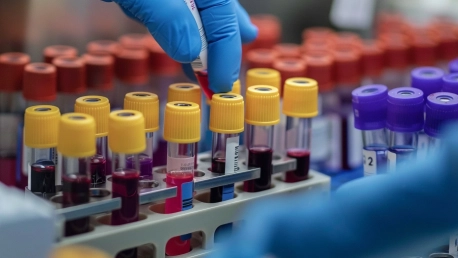The quest for effective treatments in the fight against metabolic dysfunction-associated fatty liver disease (MAFLD), formerly known as non-alcoholic steatohepatitis (NASH), has reached an exciting new threshold. Boehringer Ingelheim has shared groundbreaking results from their Phase II clinical trial studying survodutide (BI 456906), delivering a surge of hope for patients grappling with this severe form of liver disease. This novel therapeutic is showing considerable promise, particularly for individuals with moderate to advanced stages of liver fibrosis.
Insights from the Survodutide Phase II Trial
The Impact on Liver Fibrosis and MAFLD
The latest sub-analysis from the survodutide trial zeroes in on adults bearing the burden of significant liver scarring. Subjects within fibrosis stages F2 and F3, often linked with a heightened risk of progressing to cirrhosis, were under the microscope—and the findings are impressive. An astounding 64.5% of these patients saw marked improvements in their fibrosis, and all this without exacerbating their MAFLD, over a 48-week treatment course. These figures starkly contrast with the mere 25.9% improvement rate observed in the placebo group.Extended to a broader group across fibrosis stages F1 to F3, the beneficial effects of survodutide still shine through. More than half (52.3%) of these patients showcased significant relief from the insidious tightening of liver scarring, as opposed to a 25.8% amelioration rate in those administered the placebo. As the medical community mines for solutions in MAFLD management, these outcomes underscore survodutide as a potential flagship therapy for this condition.
Efficacy Beyond Fibrosis Improvement
In a significant stride in combating metabolic dysfunction-associated fatty liver disease (MAFLD), a serious liver condition, there’s new cause for optimism. Boehringer Ingelheim’s Phase II clinical trial has yielded promising results with the drug survodutide (BI 456906). This development brings a sense of hope to those affected by this challenging illness. The drug stands out as a potential game-changer, especially for patients dealing with moderate to severe liver fibrosis—a major advancement in the treatment landscape. As the quest for effective MAFLD therapies continues, survodutide’s success in clinical trials signifies a vital breakthrough, indicating substantial progress in fighting the disease and improving patient outcomes. This groundbreaking therapy could indeed transform the treatment approaches for liver disease, marking a momentous leap forward in medical research and offering newfound hope to individuals facing the struggles of MAFLD.









